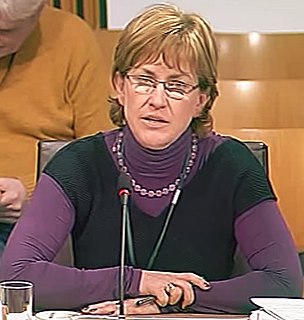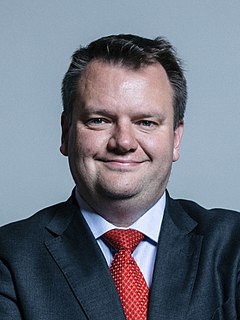Related Research Articles

The Violence Against Women Act of 1994 (VAWA) was a United States federal law signed by President Bill Clinton on September 13, 1994. The Act provided $1.6 billion toward investigation and prosecution of violent crimes against women, imposed automatic and mandatory restitution on those convicted, and allowed civil redress when prosecutors chose to not prosecute cases. The Act also established the Office on Violence Against Women within the Department of Justice.
Timeline of women's legal rights represents formal changes and reforms regarding women's rights. The changes include actual law reforms as well as other formal changes, such as reforms through new interpretations of laws by precedents. For such things only in the United States, see Timeline of women's legal rights in the United States. The right to vote is exempted from the timeline: for that right, see Timeline of women's suffrage. The timeline excludes ideological changes and events within feminism and antifeminism: for that, see Timeline of feminism.

Contemporary slavery, also known as modern slavery or neo-slavery, refers to institutional slavery that continues to occur in present-day society. Estimates of the number of slaves today range from around 38 million to 46 million, depending on the method used to form the estimate and the definition of slavery being used. The estimated number of slaves is debated, as there is no universally agreed definition of modern slavery; those in slavery are often difficult to identify, and adequate statistics are often not available. The International Labour Organization estimates that, by their definitions, over 40 million people are in some form of slavery today. 24.9 million people are in forced labor, of whom 16 million people are exploited in the private sector such as domestic work, construction or agriculture; 4.8 million persons in forced sexual exploitation, and 4 million persons in forced labor imposed by state authorities. 15.4 million people are in forced marriage.
The ManKind Initiative is a domestic violence charity based in the United Kingdom and is at the forefront of providing support for male victims of domestic abuse and violence. Since becoming a charity in 2001, it has provided a helpline, training and support for statutory agencies and campaigns to ensure that equal recognition is given to male victims in the same way that recognition is given to female victims of domestic abuse. It is one of only a few charities in the country to help male victims.
Economic abuse is a form of abuse when one intimate partner has control over the other partner's access to economic resources, which diminishes the victim's capacity to support themselves and forces them to depend on the perpetrator financially.
The Protection from Abuse (Scotland) Act 2001 is an Act of the Scottish Parliament. It was passed on 4 October 2001, receiving Royal Assent on 6 November.
Domestic violence in Pakistan is an endemic social and public health problem. According to a study carried out in 2009 by Human Rights Watch, it is estimated that between 10 and 20 percent of women in Pakistan have suffered some form of abuse. An estimated 5000 women are killed per year from domestic violence, with thousands of others maimed or disabled. Women have reported attacks ranging from physical to psychological and sexual abuse from intimate partners. In 1998, of the 1974 reported murders, the majority of victims were killed by family members. A survey carried out by the Thomson Reuters Foundation ranked Pakistan as the third most dangerous country in the world for women, after Afghanistan and the Democratic Republic of Congo. The majority of victims of violence have no legal recourse. Law enforcement authorities do not view domestic violence as a crime and usually refuse to register any cases brought to them. Given the very few women's shelters in the country, victims have limited ability to escape from violent situations.
Abusive power and control is commonly used by an abusive person to gain and maintain power and control over another person in order to subject that victim to psychological, physical, sexual, or financial abuse. The motivations of the abuser are varied and can include devaluation, envy, personal gain, personal gratification, psychological projection, or just for the sake of the enjoyment of exercising power and control.
Domestic violence is prominent in Nigeria as in many parts of Africa. There is a deep cultural belief in Nigeria that it is socially acceptable to hit a woman to discipline a spouse. Cases of Domestic violence is on the high and shows no signs of reduction in Nigeria, regardless of the age, tribe, religion or even social status. The CLEEN Foundation reports 1 in every 3 respondents admitting to being a victim of domestic violence. The survey also found a nationwide increase in domestic violence in the past 3 years from 21% in 2011 to 30% in 2013. A CLEEN Foundation's 2012 National Crime and Safety Survey demonstrated that 31% of the national sample confessed to being victims of domestic violence.

The Modern Slavery Act 2015 is an Act of the Parliament of the United Kingdom. It is designed to combat modern slavery in the UK and consolidates previous offences relating to trafficking and slavery. The act extends essentially to England and Wales, but some provisions apply in Scotland and Northern Ireland.

Clare Mary Smith McGlynn is a Professor of Law at Durham University. She specialises in the legal regulation of pornography, image-based sexual abuse, violence against women, and gender equality in the legal profession. In 2020, she was appointed an Honorary QC in recognition of her work on women’s equality in the legal profession and shaping new criminal laws on extreme pornography and image-based sexual abuse. She was awarded an Honorary Doctorate from Lund University, Sweden, in 2018 in recognition of the international impact of her research on sexual violence and she is a Fellow of the Academy of Social Sciences. She has given evidence before Scottish and UK Parliaments on how to reform laws on sexual violence and online abuse, as well as speaking to policy audiences across Europe and Australia. In November 2019, she was invited to South Korea to share international best practice in supporting victims of image-based sexual abuse and she has worked with Facebook to support their policies on non-consensual intimate images. She regularly contributes to media debates about her areas of expertise, commenting in 2017 on whether pornography should be included on the school curriculum, whether it is ok to watch pornography in public, celebrity image-based sexual abuse, and on the proposed regulation of upskirting in England and Wales. She has submitted evidence to UK and Scottish Parliamentary committees. Her work with Erika Rackley on the cultural harm caused by rape pornography was instrumental in the Scottish Parliament's decision to criminalise possession of such material. McGlynn and Rackley were involved in Rape Crisis London's campaign to 'close the loophole' that makes possession of rape pornography lawful in England and Wales. The campaign was successful, and an amendment to include rape in the definition of 'extreme pornography' was incorporated into the Criminal Justice and Courts Act 2015.

Angela Crawley is a Scottish National Party politician. She was first elected as the Member of Parliament (MP) for Lanark and Hamilton East at the 2015 general election. Crawley has served as the SNP Shadow Attorney General since 2021. She was previously the SNP spokesperson for Women and Equalities and a member of the House of Commons Women and Equalities Committee.

Nicklaus Thomas-Symonds, is a British Labour politician, barrister, and academic who has served as Shadow Home Secretary since April 2020, and as Member of Parliament (MP) for Torfaen since 2015. He previously served in the Shadow Home Office Team of Shadow Home Secretary Diane Abbott as Shadow Minister of State for Security from 2017 to 2020.

Elizabeth Saville Roberts is a British politician, currently serving as the group leader of Plaid Cymru in the House of Commons. She has been the Member of Parliament (MP) for Dwyfor Meirionnydd since the general election in 2015. She has also chaired the All-Party Parliamentary Group on Digital Crime since June 2016.
Domestic violence in the United Kingdom is a criminal offence; the law says that domestic violence or abuse can be physical, psychological, sexual, financial or emotional.
The Concealed Carry Reciprocity Act of 2017, or House Bill 38, is a bill that would amend Title 18 of the United States Code to require all U.S. states to recognize concealed carry permits granted by other states. It would also allow the concealed transport of handguns across state lines, so long as it is allowed by both states and would amend the Gun-Free School Zones Act of 1990 to allow permit holders to carry a concealed weapon in school zones in any state.

The Secure Tenancies Act 2018 is an Act of the Parliament of the United Kingdom. The act allows secure tenancies to be given to victims of domestic abuse. It was introduced to Parliament as a government bill by Sajid Javid and Lord Bourne of Aberystwyth of the Department for Communities and Local Government.
The Animal Welfare (Sentience) Bill is legislation proposed by the Government of the United Kingdom at the 2021 State Opening of Parliament. The law will halt most live animal exports—as allowed Post-Brexit, implement a ban on hunting trophy imports, and recognise animal sentience in law for the first time. The bill is being pursued by the Department for Environment, Food and Rural Affairs.
The ‘We Can’t Consent to this’ campaign aims to raise awareness surrounding the issues of violence typically committed during sexual intercourse, as well as campaigning to abolish the 'rough sex' defence.
In 2021, the Domestic Abuse Bill was passed and given Royal Assent to create the Domestic Abuse Act 2021. This Act was used to verify the Istanbul Convention however much of the content within the Act is still much debated. There have been calls to tackle domestic violence in the United Kingdom, which is known as a "silent epidemic", and this Act has created progress for the UK tackling domestic abuse however much is still needed in order to address the shortfalls that the current legislation offers victims of domestic violence and this Act has taken eight years after the Istanbul Convention for the UK to carry out their commitments.
References
- ↑ "Victims of Abuse (Support) Bill - Parliamentary Bills - UK Parliament". bills.parliament.uk. Retrieved 2021-06-08.
- ↑ "Domestic Abuse Bill: For these victims, a new law is long overdue". BBC News. 2021-04-30. Retrieved 2021-06-08.